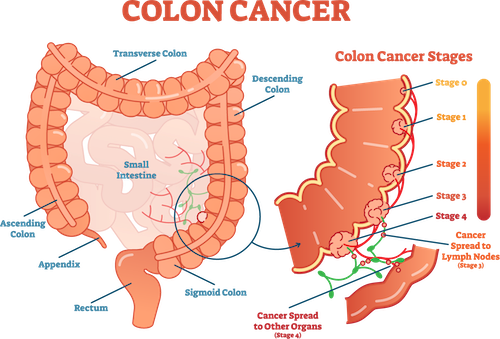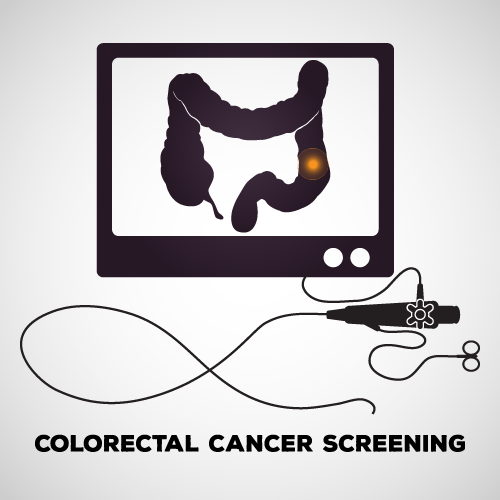In recognition of Colorectal Cancer Awareness Month, Rutgers Cancer Institute of New Jersey hosted a Twitter chat to discuss the basics of colorectal cancer, importance of screening and prevention, and the impact COVID-19 on colorectal cancer treatment. Participants joined the conversation using the hashtag #CINJScreenNJTwitterChat and #CRCScreeningAwareness while Howard S. Hochster, MD, FACP, associate director for Clinical Research and director of the Gastrointestinal Oncology Program at Rutgers Cancer Institute of New Jersey and director of Oncology Research at RWJBarnabas Health along with Patrick Boland, MD, medical oncologist in the Gastrointestinal Oncology Program at Rutgers Cancer Institute and Anita Kinney, PhD, associate director for Population Science and Community Outreach at Rutgers Cancer Institute, director of the Center for Cancer Health Equity at Rutgers School of Public Health and director of ScreenNJ provided their expertise on the topics.
If you were unable to log on for the Twitter chat, see the full recap of responses below:
What is colorectal cancer?
Colon cancer results from changes in colon lining cells. Due to loss of growth control the cells form benign polyps (adenoma) first & these eventually lose all control and become cancer cells. These can make a local mass in the colon or the local lymph nodes or can travel.
View Tweet
Importantly, colorectal cancer is the 2nd leading cause of cancer death among adults and the 3rd most common cancer in both men and women.
View Tweet

Can colorectal cancer be prevented through screening?
Yes, colorectal screening looks for cancer before symptoms start & research shows that screening saves lives.Insert photo
Regular colorectal cancer screening can find cancer early, when it’s small and might be easier to treat and cure. Some screening tests (like colonoscopy) can even prevent cancer from developing by removing precancerous polyps.
View Tweets
 What are the guidelines for screening frequency for colorectal cancer?
What are the guidelines for screening frequency for colorectal cancer?
People at normal risk should start with screening colonoscopy at age 45 and if negative can wait for at least 5 years between procedures. If 1st degree relative, start 10 yes before the age they were diagnosed. If large or many adenomas, then every year.
View Tweet
Both the US Preventive Services Task Force and the American Cancer Society recommend that, if you don’t have any extra risk factors, you should start getting screened for colorectal cancer when you reach the age of 45-50.
If you’re at higher risk of colorectal cancer - for example, if you have a family history of cancer - you may need to start screening at a younger age or may need more frequent screening.
If you have a family history of #ColorectalCancer cancer, you may be advised to start at the age of 40 or 10 years before your family member was diagnosed.
Learn more about colorectal cancer risk factors at http://bit.ly/2H1KuCu & talk to your doctor about when you should start getting screened.
View Tweet

If you have been diagnosed with colorectal #cancer, can you still receive cancer treatment during COVID-19?
Testing, diagnosing, treating all MUCH more important that risk of infection with CoV2 today. Even if not vaccinated. Get back into healthcare now without fear.
We should not be afraid of seeing the doctor in the COVID era. We have full precautions at Rutgers Cancer Institute. Everyone (including. doctors/nurses) screened at door. Full protection for providers and masks for all.
View Tweets
Fully agree! Don't neglect colorectal cancer screening or appropriate cancer management! Multiple groups have suggested decreased screening and lower numbers of cancers detected since COVID. Worrisome! https://www.sciencedirect.com/science/article/pii/S1470204520303880
View Tweet
What are some advances in colorectal cancer treatment?
We are making steady progress in colorectal cancer treatment. New technologies leveraging DNA blood levels to detect early/residual cancer. New drug clinical trials, new combos, immunotherapy, antibody-drug conjugates available. Get tomorrow’s treatments today at Rutgers Cancer Institute.
View Tweet
ctDNA as a new contributer to: 1) detect residual cancer after surgery (BESPOKE) 2) guide treatment decisions after surgery (NRG GI-005) 3) identify informed treatments in advanced stage dz (COLOMATE)
View Tweet
Thank you to everyone who participated in Rutgers Cancer Institute of New Jersey’s Twitter chat. To learn more about the Gastrointestinal Oncology Program at Rutgers Cancer Institute, visit: https://cinj.org/patient-care/adult/gastrointestinal

